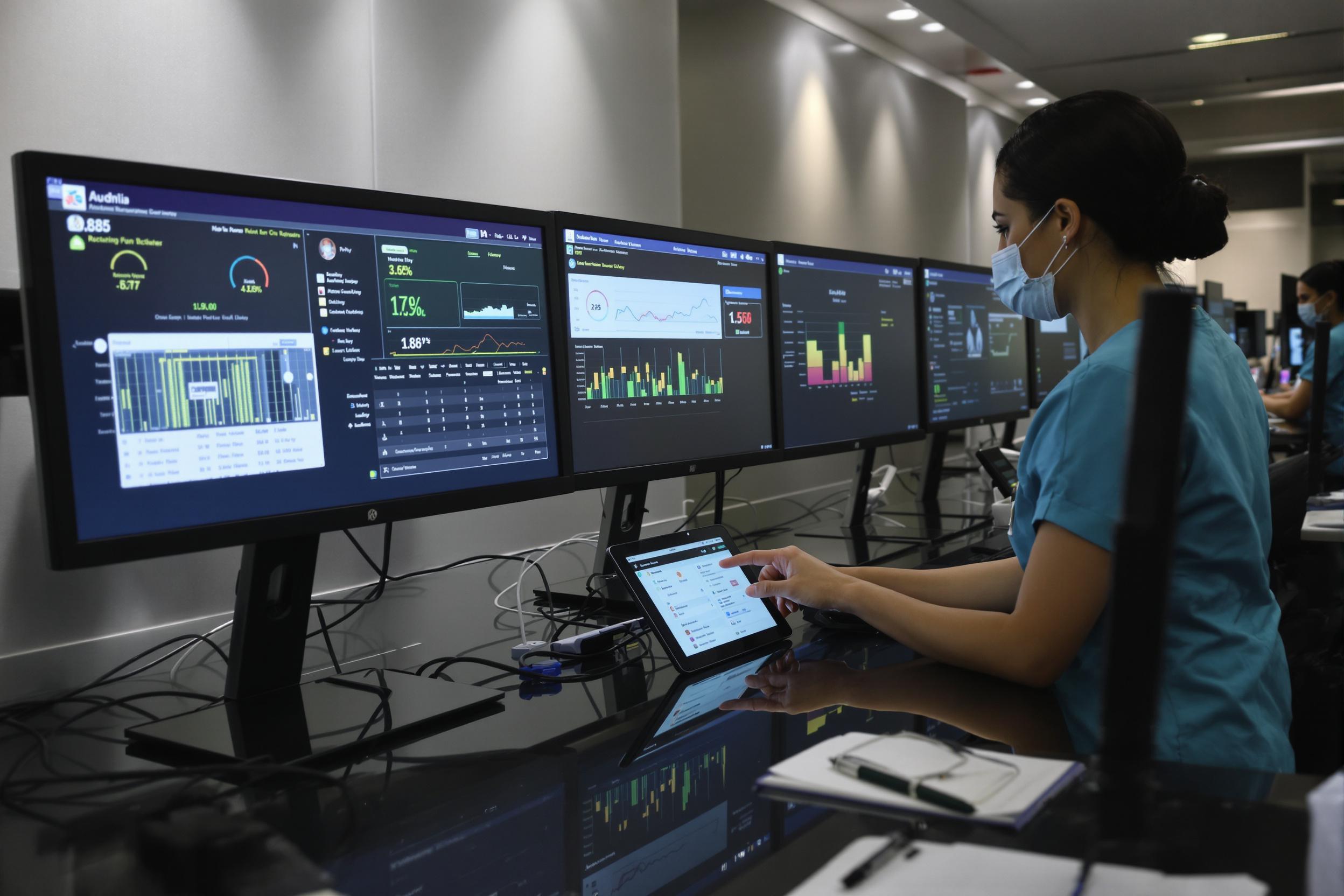
Manual documentation, compliance complexity, and fragmented workflows plague addiction treatment centers nationwide. Recent JMIR research found EHR adoption in SUD programs rose 11.6% in one year, yet only 68% of hospital-based programs use basic EHR functions. According to a study by the National Center for Biotechnology Information, clinicians spend nearly 49% of their time on EHR documentation, contributing to burnout and reducing patient-facing time. These workflow inefficiencies can compromise patient outcomes and strain clinical resources. A modern addiction treatment EHR like Lightning Step transforms these challenges into streamlined processes that improve documentation accuracy, enhance communication, and deliver better patient care.
An addiction treatment EHR differs significantly from generic medical record systems. These specialized platforms address the unique needs of substance use disorder treatment, including extended therapy sessions, group documentation, and complex regulatory requirements.
Unlike standard EHRs, addiction treatment systems must handle 42 CFR Part 2 compliance for patient confidentiality, track medication-assisted treatment protocols, and document group therapy sessions that link one note to multiple patient records. The February 2024 regulatory updates now allow single consent forms for treatment, payment, and healthcare operations, making specialized EHR systems even more valuable.
These systems directly impact efficiency and care continuity. Research shows that EHR usability issues significantly contribute to documentation burden in clinical settings, making specialized solutions essential for addiction treatment workflows.
Modern addiction treatment EHRs operate on cloud-based platforms that provide mobile access for clinicians working in various settings. This flexibility allows providers to document care whether they're in the clinic, conducting home visits, or providing telehealth services.
Voice-to-text transcription and AI note-generation are among the top requested features for 2024–25. Configurable templates specific to substance use disorders streamline documentation for intake assessments, treatment plans, and progress notes. Automated reminders help track medication schedules and appointment follow-ups, while e-signature capabilities eliminate paperwork delays.
Interoperability features connect with laboratories, pharmacies, and referral partners through API integrations. Lightning Step's EMR platform exemplifies these capabilities with seamless cloud hosting, mobile applications, and extensive connector libraries that integrate with existing healthcare systems.
Structured data fields and SUD-specific templates reduce documentation time while improving accuracy. These systems auto-populate patient demographics, medication lists, and dosing schedules from previous entries, eliminating redundant data entry.
Built-in compliance tools automatically track 42 CFR Part 2 requirements, maintain audit logs, and generate regulatory reports. This automation reduces administrative burden while maintaining strict privacy standards.
Lightning Step's templating engine and compliance dashboard demonstrate these benefits in practice. The platform's AI-powered documentation assistant, LIA, helps clinicians save over 12.5 hours monthly on documentation tasks by streamlining note creation and ensuring compliance requirements are met automatically.
Secure provider-to-provider messaging enables real-time care coordination between treatment team members. This communication happens within the EHR environment, maintaining patient confidentiality while improving response times.
Patient engagement portals facilitate appointment reminders, telehealth visits, and progress surveys. These tools keep patients connected to their care team and improve treatment adherence.
Electronic referral workflows simplify care transitions with external treatment partners. Lightning Step's CRM capabilities include built-in messaging, e-prescribing, and patient portal features that keep all stakeholders aligned throughout the treatment process.
Real-time dashboards track key metrics like attendance rates, treatment retention, and relapse indicators. LightningStep's LIA-powered analytics use relapse-risk algorithms to trigger real-time alerts when patients show warning signs. These insights help clinical teams identify patterns and adjust treatment approaches proactively.
Advanced predictive models help treatment centers identify high-risk patients early and provide targeted interventions. PMC research shows EHR-based predictive models offer promising results for improving clinical outcomes, while Number Analytics reports that predictive modeling can reduce healthcare costs by identifying high-risk patients.
Customizable reporting supports quality improvement initiatives, grant requirements, and regulatory compliance. Lightning Step's analytics modules provide comprehensive outcome tracking that helps treatment centers demonstrate their effectiveness and secure continued funding.
Recovery Clinic struggled with manual charts and siloed patient data. In a 30-day rollout of LightningStep's all-in-one platform (EMR, CRM, RCM), they achieved a 40% reduction in documentation time and a 25% increase in follow-up appointment compliance.
Successful EHR implementation requires strong leadership support and clinical champions who advocate for the new system. Change management forms the foundation of successful EHR transitions. TechTarget recommends nine EHR implementation best practices—meticulous planning, executive sponsorship, iterative testing, role-based training, etc.—to ensure user adoption.
Data migration planning involves mapping legacy fields and testing interoperability with existing systems. This preparation prevents data loss and ensures smooth transitions.
Role-based training sessions address specific user needs, while ongoing support helps staff adapt to new workflows. Phased implementation approaches allow for gradual adoption and thorough testing.
Lightning Step provides comprehensive onboarding services, extensive knowledge bases, and active user communities that support successful implementations.
Selection criteria should include specialized SUD workflows, scalability options, user-friendly interfaces, and robust vendor support. Generic EHRs often lack the specific features addiction treatment centers need. Over 95% of non-federal acute care hospitals now use certified EHRs, highlighting broad healthcare adoption trends.
Lightning Step differentiates itself through transparent pricing, dedicated compliance tools, and extensive customization options. The platform combines CRM, EMR, and RCM capabilities in a single system, eliminating the need for multiple software solutions. Lightning Step's RCM capabilities ensure streamlined claims submission and revenue optimization, removing the need for separate billing software.
The company's ISO 42001 certification and 2025 CIO 100 Award recognition demonstrate their commitment to quality and innovation in behavioral healthcare technology.
Modern addiction treatment EHRs transform clinical workflows by improving documentation efficiency, enhancing communication, and supporting better patient outcomes. These specialized systems address the unique challenges of substance use disorder treatment while maintaining strict compliance standards.
Lightning Step leads this digital transformation by providing comprehensive solutions designed specifically for addiction treatment centers. The platform's integrated approach eliminates workflow fragmentation while supporting clinicians with AI-powered tools and real-time data access.
Ready to see how Lightning Step can transform your workflows? Schedule a personalized demo today to experience firsthand how our platform reduces documentation time by 40% and improves patient engagement across your treatment center.



